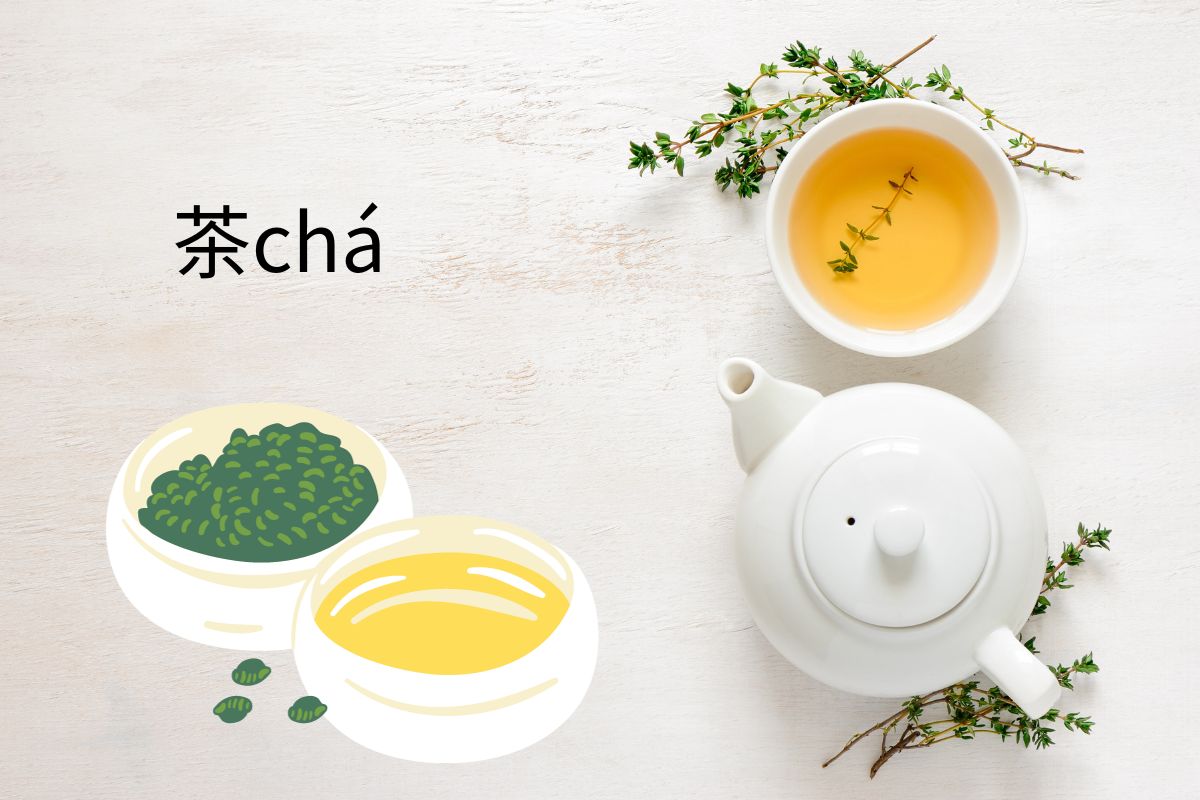The Introduction of Chinese Tea-中国茶 (zhōnɡ ɡuó chá)
The artical introduces Chinese tea. There are many interesting knowledge about the production and making techniques in the article. The tea that has delighted and fascinated the world for millennia has finally received top-level global recognition as a shared Chinese cultural treasure of mankind.
Traditional tea processing techniques and their associated social practices in China were added to UNESCO's Representative List of the lntangible Cultura Heritage of Humanity on 29th Nowember, 2022.

茶(chá), Noun, tea
Examples:
- Would you like tea or coffee?
你想要茶还是咖啡?
nǐ xiǎnɡ yào chá hái shì kā fēi? - Would you like a cup of tea?
你想喝杯茶吗?
nǐ xiǎnɡ hē bēi chá mɑ ? - I prefer tea to juice.
比起果汁我更喜欢茶。
bǐ qǐ ɡuǒ zhī wǒ ɡènɡ xǐ huɑn chá.
Traditional tea processing techniques and associated social practices in China consists of knowledge, skills and practices concerning management of tea plantations, picking of tea leaves,and the processing, drinking and sharing of tea. According to UNESCO, in China, traditional tea processing techniques are closely associated with geographical location and natural environment, associated social practices.However, thry are spread throughout the country and shared by multiple ethnic groups.
According to different skills and customs, people divided tea into six main kinds. There are green tea, yellow tea, dark black tea,black tea, white tea and Oolong tea. Besides these, there is scented tea which is reprocessed by planters. In total, all kinds of tea is up to 2000. Tea makers use (杀青) shaqing, (闷黄) menhuang, (渥堆) wodui, (萎凋) weidiao, (做青) zuoqing, (发酵) fajiao, (窨制) yinzhi and so on skills to turn leaves into tea. This is a hard but amazing procession.
国家(ɡuó jiā), Noun, the terriyory occupied by a nation
Examples:
- I love my country.
我爱我的国家。
wǒ ài wǒ de ɡuó jiā. - It's good to meet people from different parts of the country.
结识来自这个国家不同地区的人是有益的。
jié shí lái zì zhè ɡe ɡuó jiā bù tónɡ dì qū de rén shì yǒu yì de. - If you can speak the language,it's easier to get to know the country and its people.
如果你会讲当地的语言,就更容易了解这个国家和那里的人民。
rú ɡuǒ nǐ huì jiǎnɡ dānɡ dì de yǔ yán , jiù ɡènɡ rónɡ yì liáo jiě zhè ɡe ɡuó jiā hé nà lǐ de rén mín.
Traditional tea making techniques are mainly concentrated in the four tea areas of the south of the Qinling Mountains and Huaihe River and the Qinghai-Tibet Plateau. Relevant customs are widely distributed throughout the country and shared by multiple ethnic groups. The mature and developed traditional tea making techniques and their extensive and in-depth social practice reflect the creativity and cultural diversity of the Chinese nation, and convey the concept of tea and the world.
Through the Silk Road, the Tea-horse Road and Tea Route, tea has crossed history and borders and is loved by people of all over the world. It has become an important medium for China and the world and the Chinese civilization and other civilizations. It has become the common wealth of human civilizations.
喜爱(xǐ ài), Verb, have a great affection or liking for
Examples
- We love each other.
我们彼此喜爱。
wǒ men bí cǐ xǐ ài. - I really love summer evenings.
我非常喜爱夏天的夜晚。
wǒ fēi chánɡ xǐ huɑn xià tiān de yè wǎn. - He loves Amy's voice.
他喜爱艾米的声音。
tā xǐ huɑn ài mǐ de shēnɡ yīn.